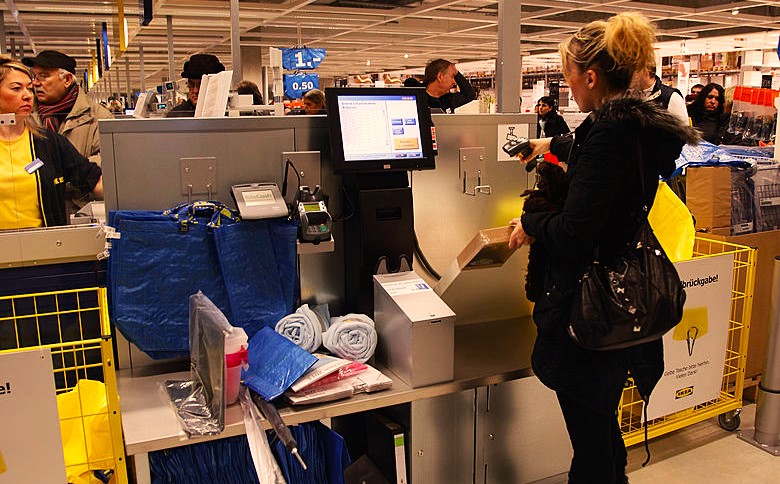In recent developments, Walmart, the retail giant, has introduced a Walmart is charging $98 for self checkout. This move has sparked widespread discussion and debate among consumers and industry experts alike. In this article, we delve into the intricacies of this new fee, exploring its implications, rationale, and the broader impact on the retail industry.
Understanding the Walmart is charging $98 for self checkout
Walmart’s decision to charge Walmart is charging $98 for self checkout marks a significant shift in its retail strategy. Traditionally, self-checkout systems were introduced to streamline the shopping experience, reduce labor costs, and offer convenience to tech-savvy consumers. However, the introduction of this fee raises several questions about its purpose and potential effects on customer behavior.
The Rationale Behind the Fee of Walmart is charging $98 for self checkout
To understand why Walmart has implemented this fee, we need to consider several factors:
- Operational Costs: Self-checkout systems, while reducing the need for cashiers, still incur significant operational costs. Maintenance, software updates, and security measures are ongoing expenses that Walmart must cover.
- Encouraging Traditional Checkouts: By introducing a fee, Walmart may be aiming to balance the usage of traditional and self-checkout lanes. This could help manage in-store traffic more effectively, especially during peak shopping hours.
- Value-Added Services: Walmart might be positioning this fee as a value-added service. For example, enhanced security features, faster processing times, or additional assistance from staff could justify the cost to consumers.
Consumer Reactions and Behavioral Shifts
The introduction of a Walmart is charging $98 for self checkout fee has elicited a mixed response from consumers:
- Negative Reactions: Many customers view the fee as an unnecessary expense, feeling that self-checkout should be a free convenience. This sentiment could lead to a decline in the use of self-checkout lanes and a potential backlash against Walmart.
- Positive Adaptations: Conversely, some consumers may appreciate the enhanced features and security that come with the fee. These customers might view the $98 as a worthwhile investment for a smoother and more secure shopping experience.
Comparative Analysis with Competitors
It is essential to examine how Walmart’s competitors are responding to this new fee:
- Target: Target has maintained its free self-checkout services, which could attract customers disenchanted with Walmart’s new policy. This competitive advantage might influence Walmart to reconsider or adjust its fee structure.
- Amazon Go: Amazon’s cashier-less stores represent a different approach to automated shopping. The absence of checkout lines altogether offers a contrasting model to Walmart’s fee-based self-checkout system.
Impact on the Retail Industry of Walmart is charging $98 for self checkout
Walmart is charging $98 for self checkout fee could have broader implications for the retail industry as a whole:
Technological Advancements and Investments
Retailers may need to reassess their investments in self-checkout technologies. The fee could prompt a re-evaluation of the cost-benefit balance, leading to innovations that reduce operational expenses or enhance the value proposition of self-checkout systems.
Consumer Trust and Satisfaction
Maintaining consumer trust is crucial. Retailers must ensure that any fees introduced are transparent and justifiable. Clear communication about the benefits and reasons for the fee will be essential in retaining customer loyalty and satisfaction.
Competitive Dynamics
The fee could alter competitive dynamics in the retail sector. Competitors might leverage Walmart’s decision to differentiate their offerings, potentially attracting Walmart’s customers. Alternatively, if the fee proves successful, other retailers might adopt similar strategies.
Future Outlook: Adapting to Changing Retail Landscapes
Walmart’s $98 self-checkout fee is a bold move that reflects the evolving landscape of retail. As consumer preferences and technological capabilities continue to shift, retailers must adapt to stay relevant and competitive. Here are some potential future trends:
Enhanced Self-Checkout Features
To justify fees, retailers might introduce advanced features in self-checkout systems, such as:
- Biometric Authentication: Using facial recognition or fingerprint scanning to ensure secure transactions.
- Personalized Shopping Experiences: Integrating loyalty programs and personalized recommendations directly into self-checkout interfaces.
Hybrid Checkout Models of Walmart is charging $98 for self checkout
Retailers might explore hybrid models that combine traditional and self-checkout services. Offering a tiered approach, where basic self-checkout remains free while premium features incur a fee, could balance convenience and cost.
Consumer Education and Engagement of Walmart is charging $98 for self checkout
Educating consumers about the benefits of self-checkout fees will be crucial. Retailers should invest in marketing campaigns and in-store signage to highlight the value-added aspects of paid self-checkout services.
Conclusion: Navigating the Future of Retail
Walmart is charging $98 for self checkout represents a significant development in the retail sector. As the industry continues to evolve, understanding the rationale behind such fees and their impact on consumer behavior is essential. Retailers must strike a balance between operational efficiency, customer satisfaction, and competitive positioning to thrive in this dynamic landscape.


